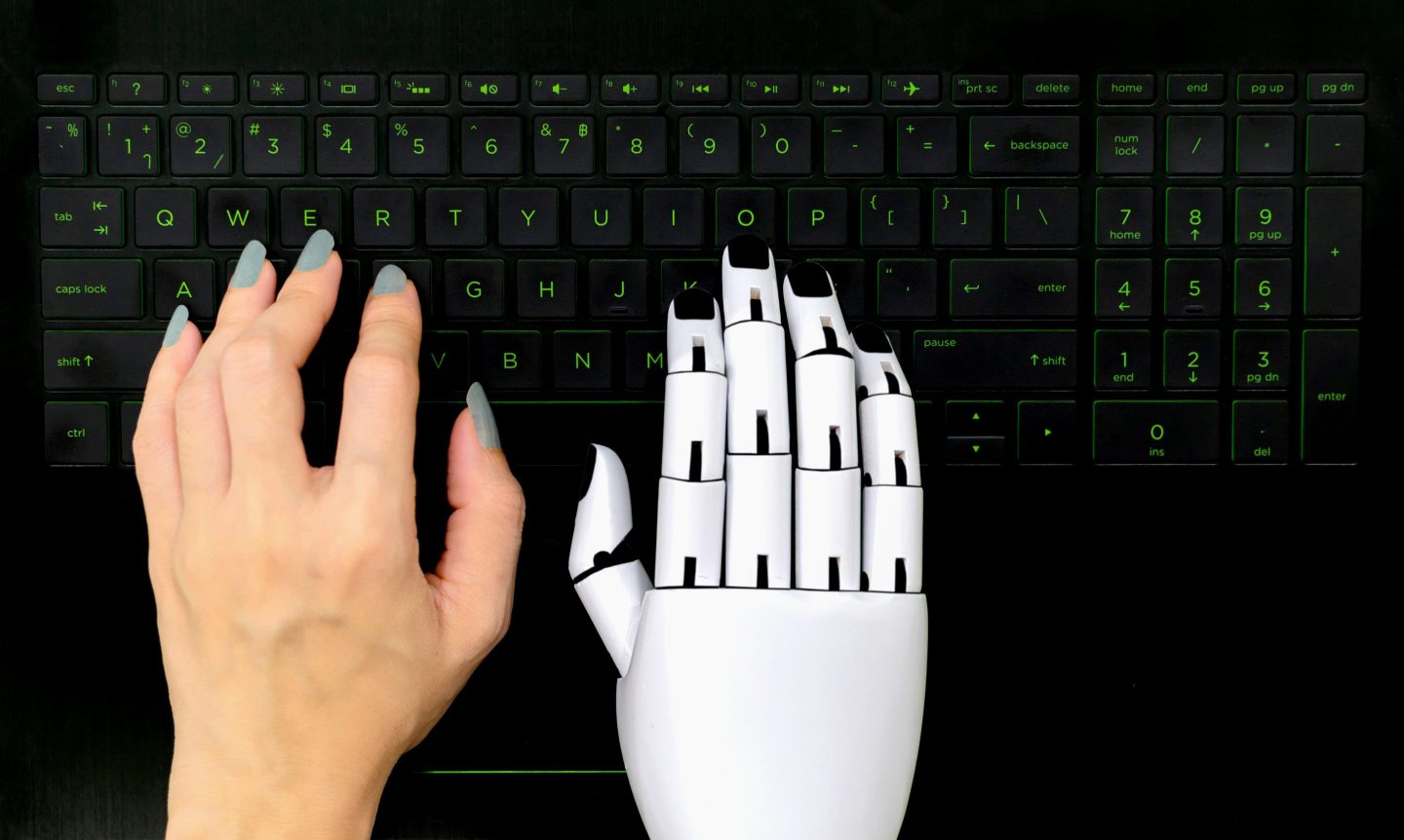
人工智能曾经只是科幻小说里虚构的概念,现在人工智能不仅变成了现实,而且在有些行业,人工智能技术被用于激发甚至在某些情况下取代人类的创造力,引发了这些行业的担忧。
美国科幻杂志《Clarkesworld》收到大量使用与ChatGPT类似的生成式人工智能技术创作或改进的稿件之后,宣布停止接收投稿。
该杂志主编尼尔·克拉克上周在一篇博客中写道: “2022年底,又出现了一波剽窃高潮,后来‘人工智能’聊天机器人开始引起更多关注,这让剽窃者获得一种新工具,也让更多人尝试这种‘副业’。”他还表示,人工智能生成的稿件数量激增,问题已经“失控”。
克拉克并未立即回复《财富》杂志的置评请求。
快速增长的趋势
许多人希望在写作或内容生成方面寻找创意协助,ChatGPT等生成式人工智能工具的广泛应用和走红,为他们提供了机会。但人们才刚刚开始探索如何使用生成式人工智能提高创造能力。
路透社在周二报道称,来自纽约的销售员布雷特·席克勒尔利用人工智能进行内容创作。他最近完全使用ChatGPT,通过输入单个短语作为提示,写了一本30页的童书。这本书在“几个小时内”就创作完成。席克勒尔成功自费出版,1月开始在亚马逊(Amazon)发售。
席克勒尔对路透社表示:“可以预想,人们能利用这项技术成就自己的事业。”人们正在尝试利用人工智能探索许多机会,这种趋势从他的例子可见一斑。席克勒尔从未想过他能成为作家,直到有了ChatGPT的帮助。
在创意领域,生成式人工智能引发了更广泛的道德辩论,人们开始争论这项技术帮助生成的内容的所有权归属。ChatGPT等工具使用不同互联网数据来源的资源进行培训,这些资源包括人类对话和有版权保护的资料等。ChatGPT的所有者OpenAI并未对其平台上生成的内容提起版权主张。但随着越来越多的人将人工智能生成的内容视为自己的作品进行投稿,所有权问题依旧是一个灰色区域。
据路透社报道,在亚马逊的Kindle商店,有200多本电子书将ChatGPT标记为作者或作者之一。尽管有这些已经披露的信息,但要确定一本书是否确实是人工智能技术的作品,依旧是一项艰难的任务。
几个月来,科技媒体CNET尝试利用人工智能技术撰写解读性文章和条列式文章。调查显示,人工智能生成的文章存在错误,导致CNET不得不暂停使用人工智能技术进行写作。
尽管人工智能生成的内容引发了激烈的所有权之争,但科技巨头仍在纷纷开发不同版本的类似工具。谷歌(Google)在本月早些时候公布了聊天机器人Bard,微软(Microsoft)公布了经过完善的新版搜索引擎必应(Bing),其中将整合OpenAI的技术。但这些工具在演示时均出现了令人尴尬的错误,而且存在显而易见的道德问题,这表明它们依旧处在初期。
OpenAI并未立即回复《财富》杂志在正常工作时间以外提出的置评请求。(财富中文网)
译者:刘进龙
审校:汪皓
人工智能曾经只是科幻小说里虚构的概念,现在人工智能不仅变成了现实,而且在有些行业,人工智能技术被用于激发甚至在某些情况下取代人类的创造力,引发了这些行业的担忧。
美国科幻杂志《Clarkesworld》收到大量使用与ChatGPT类似的生成式人工智能技术创作或改进的稿件之后,宣布停止接收投稿。
该杂志主编尼尔·克拉克上周在一篇博客中写道: “2022年底,又出现了一波剽窃高潮,后来‘人工智能’聊天机器人开始引起更多关注,这让剽窃者获得一种新工具,也让更多人尝试这种‘副业’。”他还表示,人工智能生成的稿件数量激增,问题已经“失控”。
克拉克并未立即回复《财富》杂志的置评请求。
快速增长的趋势
许多人希望在写作或内容生成方面寻找创意协助,ChatGPT等生成式人工智能工具的广泛应用和走红,为他们提供了机会。但人们才刚刚开始探索如何使用生成式人工智能提高创造能力。
路透社在周二报道称,来自纽约的销售员布雷特·席克勒尔利用人工智能进行内容创作。他最近完全使用ChatGPT,通过输入单个短语作为提示,写了一本30页的童书。这本书在“几个小时内”就创作完成。席克勒尔成功自费出版,1月开始在亚马逊(Amazon)发售。
席克勒尔对路透社表示:“可以预想,人们能利用这项技术成就自己的事业。”人们正在尝试利用人工智能探索许多机会,这种趋势从他的例子可见一斑。席克勒尔从未想过他能成为作家,直到有了ChatGPT的帮助。
在创意领域,生成式人工智能引发了更广泛的道德辩论,人们开始争论这项技术帮助生成的内容的所有权归属。ChatGPT等工具使用不同互联网数据来源的资源进行培训,这些资源包括人类对话和有版权保护的资料等。ChatGPT的所有者OpenAI并未对其平台上生成的内容提起版权主张。但随着越来越多的人将人工智能生成的内容视为自己的作品进行投稿,所有权问题依旧是一个灰色区域。
据路透社报道,在亚马逊的Kindle商店,有200多本电子书将ChatGPT标记为作者或作者之一。尽管有这些已经披露的信息,但要确定一本书是否确实是人工智能技术的作品,依旧是一项艰难的任务。
几个月来,科技媒体CNET尝试利用人工智能技术撰写解读性文章和条列式文章。调查显示,人工智能生成的文章存在错误,导致CNET不得不暂停使用人工智能技术进行写作。
尽管人工智能生成的内容引发了激烈的所有权之争,但科技巨头仍在纷纷开发不同版本的类似工具。谷歌(Google)在本月早些时候公布了聊天机器人Bard,微软(Microsoft)公布了经过完善的新版搜索引擎必应(Bing),其中将整合OpenAI的技术。但这些工具在演示时均出现了令人尴尬的错误,而且存在显而易见的道德问题,这表明它们依旧处在初期。
OpenAI并未立即回复《财富》杂志在正常工作时间以外提出的置评请求。(财富中文网)
译者:刘进龙
审校:汪皓
The world of artificial intelligence, once a concept confined to science fiction, is now not only a reality but a big worry in industries where the technology is being used to turbocharge—and in some cases replace—human creativity.
Clarkesworld, a U.S.-based science fiction magazine, has stopped accepting story submissions after receiving an overwhelming number created with or enhanced using generative A.I. technology like ChatGPT.
“Towards the end of 2022, there was another spike in plagiarism and then ‘AI’ chatbots started gaining some attention, putting a new tool in their arsenal and encouraging more to give this ‘side hustle’ a try,” Neil Clarke, the magazine’s editor, wrote in a blog post last week. He added that the issue had gotten “out of hand” with a meteoric rise in the number of A.I. submissions.
Clarke did not immediately return Fortune’s request for comment.
Fast-growing trend
The widespread adoption and popularity of generative A.I. tools like ChatGPT have opened doors for many seeking creative assistance in writing or content generation. But the magnitude of how people can use generative A.I. to improve their creativity is only just being explored.
One of those who adopted A.I. for content creation is New York–based salesman Brett Schickler, who recently used ChatGPT to write a 30-page children’s book entirely by providing simple one-phrase prompts, Reuters reported Tuesday. It was ready in a “matter of hours,” and Schickler managed to self-publish the book and sell it on Amazon in January.
“I could see people making a whole career out of this,” Schickler told Reuters. His example reveals how people are experimenting with A.I. to explore its many opportunities. Schickler never thought he could be an author until he was with the help of ChatGPT.
In the realm of creativity, generative A.I. has sparked a broader ethical debate on the ownership of content produced with the help of such technology. Tools like ChatGPT are trained on various internet sources, including human conversations and copyrighted materials. OpenAI, the owner of ChatGPT, does not claim a copyright over the content generated on its platform. But the question of ownership continues to be a gray area as more people submit A.I.-generated content as if it’s their own work.
On Amazon’s Kindle store, there are over 200 e-books that include ChatGPT as an author or coauthor, according to Reuters. Even with such disclosures, identifying whether a book is truly a product of A.I. technology can still be a task.
CNET, a technology publication, attempted to use A.I. to write explainers and listicles over a few months. An investigation revealed that it yielded stories with inaccuracies, forcing CNET to suspend using such technology in its writing endeavors.
Despite a heated debate on the ownership of A.I.-created content, tech giants are racing to develop versions of such tools. Google announced its chatbot, Bard, earlier this month, and Microsoft announced a new and improved version of its search engine, Bing, that will be infused with OpenAI’s technology. Both the tools had embarrassing instances of inaccuracies in their outputs at their demos—not to mention apparent ethical lapses—showing that they are still in their infancy.
OpenAI did not immediately return Fortune’s request for comment made outside its regular operating hours.






